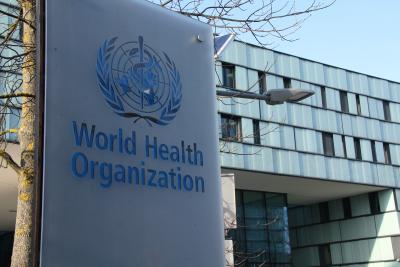As some countries are considering giving a third booster Covid vaccine shot to keep more aggressive coronavirus variants at bay, the WHO’s chief scientists says it is too early to jump to the conclusion that they will be required.
“We do not have the information that’s necessary to make the recommendation on whether or not a booster will be needed as the science is still evolving,” Soumya Swaminathan, the World Health Organization’s chief scientist, said in a Zoom interview on Friday.
Also read: Caesarean section rates rising globally: WHO
Such a call is “premature” while high-risk individuals in most of the world haven’t yet completed a first course of vaccination, Swaminathan explained.
Data from countries introducing precautionary extra inoculations later this year, will inform WHO’s guidance, she said.
Also read: AIIMS chief sees 3rd Covid wave coming in 6 to 8 weeks as people turn careless
Covid booster shots are likely to be rolled out in U.K. to avoid another winter surge. Seven different vaccines are being tested in volunteers in England in the world’s first booster study, Health Secretary Matt Hancock said last month.
More contagious Covid-19 variants, including the beta strain that emerged in South Africa, require higher antibody levels to prevent infection, prompting vaccine makers such as Pfizer Inc. and Moderna Inc. to test whether tweaked versions of their existing shots will provide broader immunity.
Early data from the U.K., Spain and Germany suggest a “mix-and-match” regimen using two different types of vaccines generates more pain, fever and other minor side effects compared with two doses of the same inoculation, Swaminathan said.
Still, the so-called heterologous prime-boost combinations appear to spur a more robust immune response, leading to both higher levels of virus-blocking antibodies and the white blood cells that kill virus-infected cells, she said.
“It seems to be working well, this concept of heterologous prime-boost,” Swaminathan said. “This opens up the opportunity for countries that have vaccinated people with one vaccine and now are waiting for the second dose they have run out of, to potentially be able to use a different platform vaccine.”
Combinations of the AstraZeneca Plc and Pfizer-BioNTech shots are being considered in Malaysia, where the government is trying to expedite vaccinations to contain the pandemic.




















